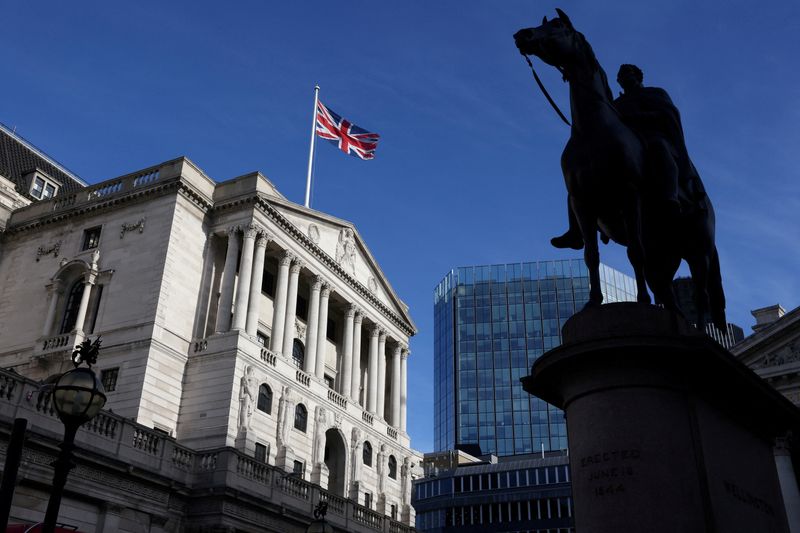LONDON (Reuters) – British consumers increased their borrowing in November by the most since July 2020, according to Bank of England data which added to signs of an early Christmas spending spree by shoppers before the Omicron coronavirus variant hit the country.
Consumer credit rose by a net 1.233 billion pounds ($1.67 billion), stronger than the median forecast in a Reuters poll of economists for a rise of 800 million pounds.
Data published last month showed British retail sales rose faster than expected in November, helped by earlier-than-usual Black Friday discounts as well as early Christmas shopping.
Tuesday’s figures from the BoE showed consumer credit rose by 0.4% in the 12 months to November having fallen in the preceding months of 2021. It was the first 12-month increase since March 2020 when the COVID-19 pandemic hit Britain.
Bethany Beckett, an economist with Capital Economics, said the figures seemed like old news giving the recent surge in COVID infections which had probably hit willingness to borrow.
“And, with real household disposable incomes facing a squeeze from higher inflation and higher taxes in the coming months, we suspect consumer spending may struggle to make much headway over the next few quarters,” she added.
The BoE figures also showed mortgage approvals in Britain in November were the lowest since June 2020 after the expiry of a tax break for home buyers. Approvals edged down to 66,964 from October’s 67,103.
Mortgage lending rose by a net 3.693 billion pounds, up from October’s slump to 1.149 billion pounds after the stamp duty tax break expired fully at the end of September.
However, the increase in November was almost 3 billion pounds below the average in the 12 months to June when the tax break was in full effect, the BoE said, suggesting cooling demand in the housing market.
($1 = 0.7403 pounds)
(Reporting by William Schomberg, editing by David Milliken)






















